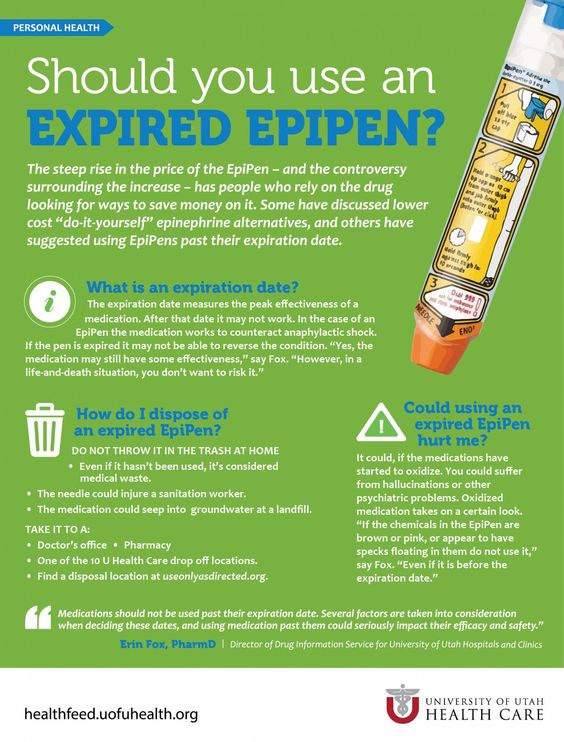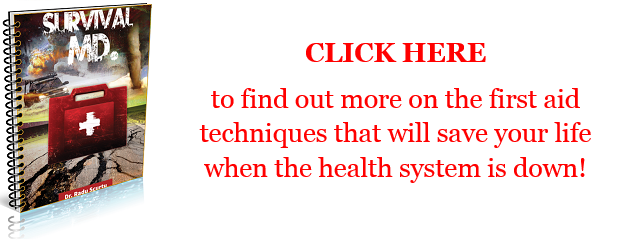
From asthma, diabetes, and hypertension to anxiety disorders and cancer, just about every ailment also has a range of medications that can be used to treat it or alleviate the symptoms.
You probably have your own drug reserve. And there are times when you don’t finish up a bottle of medicine, but still keep it for uncertain times. Do you know how to use them safely after a long time storage in case you need them?
Here are 5 questions answered on the shelf life of meds. Did we miss anything? Keep reading and complete your knowledge with our special report.
What the Date on the Bottle Really Means?
If you could take a look at the bottle the pharmacist removes your medication from, you’d be surprised to see that the recommended discard date does not match the one on the manufacturer’s packaging. Why? The pharmacists store medications in ideal settings, and also because manufacturer packages have features not found in consumer bottles.
For example, the manufacturer may add a desiccant/oxygen absorbent to the package or it may have a more airtight seal. Are you doing this at home? No, you’re not, for sure!
Once the medication is transferred to another container, it’s expected that ideal storage conditions no longer exist. Even though the shelf life of pharmaceutical supplies also drops each time a bottle is opened, the shelf life is expected to reduce much faster once the drug is in consumer hands.
Many people will tell you that individual drug molecules and stabilizers don’t have an alarm clock that suddenly goes off once the date stamped on the bottle is reached. While this may be true in a literary sense, there is no avoiding the fact that some molecules in the bottle begin changing as soon as the manufacturer forms each dose.
Get this lifesaving information about surviving when hospitals are shut down!
Can Medications Expire Before The Date Listed on the Bottle?
Even though manufacturers guarantee that drugs remain at a stable level of potency up until the expiration date, some things can cause them to expire sooner. And here are just a few common things you may be doing that shorten the shelf life of medications more than expected:
Storing medications in a medicine cabinet above a sink
Moisture from the sink can and will find its way into the medicine chest. If the medicine bottles aren’t airtight or not sealed properly, then all that moisture can seriously alter the potency levels of the drugs. Aside from that, if you store medications on beside a kitchen sink or even on a nearby counter, all that moisture can wreak havoc.
This is also true for herbal and dietary supplements. You have only to see how these medications will clump together in the bottle after just a week or so of sitting on a sink. Even if you don’t open the bottles very often, moisture will still seep in.
Storing medications over a stove or other source of heat
No matter whether you store medications over the kitchen stove or near a heating vent, all that extra heat can have a destabilizing effect.
Sunlight or artificial light reach the meds for prolonged periods of time
While you don’t necessarily have to treat all medications like camera film, avoiding light is still very important.
Storing medications in a refrigerator or freezer
If you are going to put them in cold places, pay attention to ideal storage content and moisture build up in these appliances, to keep their potency.
Liquid vs. Pill Based Drugs. Which One is Better?
If you have ever stored foods away for a longer period of time, then you already know that dehydrated foods last longer. In a similar fashion, pill based drugs also have a longer shelf life than liquid versions.
You will also find that drugs suspended in an ointment may have a shorter shelf life. For example, the active ingredient in liquid and ointment based eye treatments may have a shorter life span than the exact same active agent dispensed in pill form.
What Does the Army Know about the Shelf Life of Meds?
Over the years, the military and others have been wondering if properly stored, unopened drugs are actually potent after the listed discard date.
Studies done conclude that many drugs are still perfectly good 2 – 5 years after the listed discard date.
While these studies can be used to find out about some drugs, they may or may not tell the whole story. In particular, if the study is based on a name brand drug from the developing manufacturer, that does not mean the generics have the same storage characteristics.
Does Oxygen Absorbents and Desiccants Help?
Many oxygen absorbents used for food actually wind up emitting moisture, and makes them virtually useless for storing medications. Today, you can buy a single product such as Pharmakeep that combines a desiccant and an oxygen absorbent. It is made just for medication and can help extend the shelf life of many different drugs.
When it comes to the shelf life of any given medication, it’s difficult to know how safe the drug actually is. The manufacturer will guarantee the drug up until a certain date, but that does not mean it won’t do any good afterward.
If you choose to play it on the safe side and never take a medication past the discard date listed on the bottle, you should still make sure that you store the drug properly within that time frame.
What to Worry about When Using Expired Medications
No matter how hard you try, there may be times when you have to choose between taking a chance on using outdated drugs or having no medication at all. When in this situation, avoid any drugs that show the following characteristics:
- The tablets or gel capsules are stuck together, brittle, or show signs of becoming malformed.
- The medication has an unusual (for the drug) or foul odor
- Liquids that separate out into different layers to do not recombine easily when shaken.
- Insulin, other injectables, or inhaled drugs have a cloudy appearance or they are separated into discernible layers
- The original seal on the medicine bottle has been broken for more than a year. In some cases, such as insulin, the lifetime for an opened vial or pen may be as little as 30 days.
- The drug is in a class or family that is known for having a shortened or reduced shelf life.
Learn more about shelf life and how it works so that you can choose the best methods for each drug in your cabinet.
Aside from helping you save money, good medicine storage practices will also increase the chance your health will not be endangered by taking a medicine that no longer does what it is supposed to do.
If you are going to thrive in a situation were medicines may not be available, knowledge is the only doctor that can save you when there is no medical help around you.
Click the banner below for more!
This article has been written by Carmela Tyrell for Survivopedia.
from Survivopedia
Don't forget to visit the store and pick up some gear at The COR Outfitters. How prepared are you for emergencies?
#SurvivalFirestarter #SurvivalBugOutBackpack #PrepperSurvivalPack #SHTFGear #SHTFBag



No comments:
Post a Comment